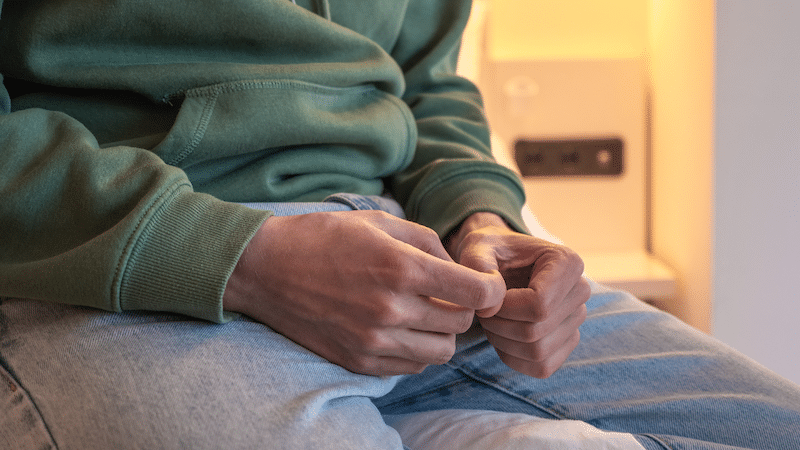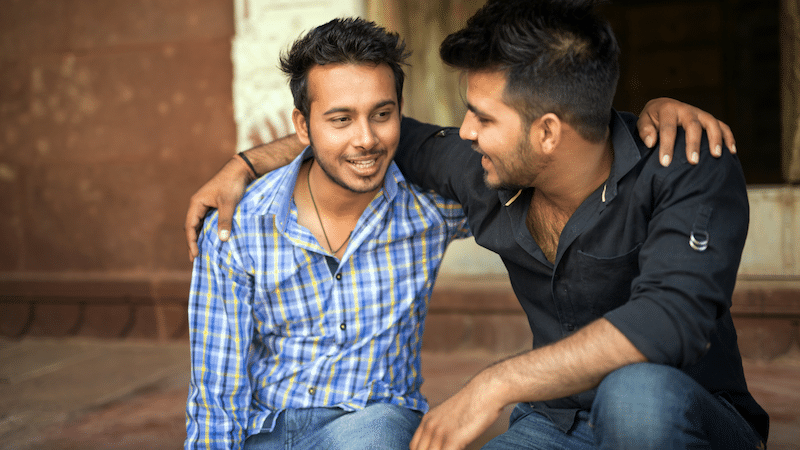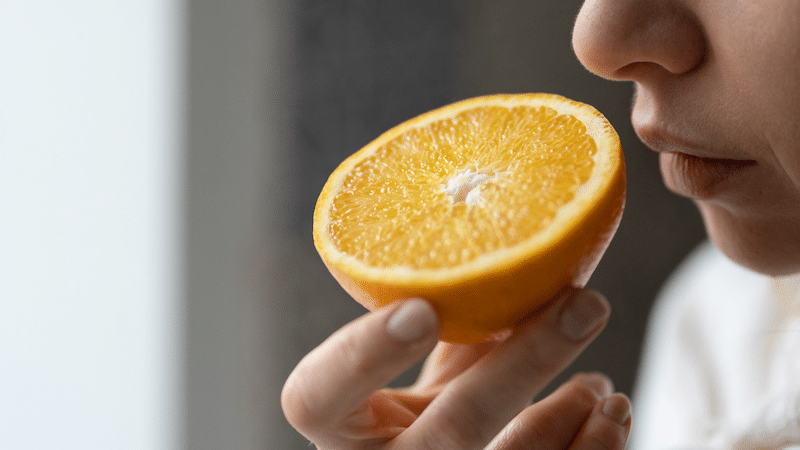Gender Roles and Healing as a Male Survivor

Male survivors share how the gender roles enforced upon them have influenced and shaped their healing process. The following answers are excerpts from our Male Survivors Panel.
Antuan Raimone
“Growing up, and once I was in college, or, middle of high school, [I began] understanding that I was attracted to other men. I was trying to come to terms with my sexuality, while also coming to terms with my ethnicity as a black man, and so I was asking myself so many questions.
What kind of black man am I? What kind of man am I? Because society was telling me, if you are a man, you have to look this way, act this way, speak this way, behave this way. And in the black community, the same things apply. Look this way, act a certain way, behave this way, speak a certain way. And so, I didn’t see myself in either of the identities, of those two identities, I’d say.
And, it led to such a judgment towards myself, of myself, and shame and fear of who I now am. And it took me many, many years and meeting other black men, black queer men, that represented the things I was taught to fear in church and throughout society. And it took meeting them and seeing them be their beautiful and bold selves, to recognize there isn’t any one or two ways to be, it’s just who you are, figuring out who that is and to be that authentically.
And so there’s an amount of unlearning that is necessary depending on what our social, religious, and cultural upbringings are to find who we are in the midst of what we have learned from the adults around us.”
Yonah Kohn
“I grew up in an extremely ultra Orthodox Jewish religious community, very Hasidic, in Brooklyn, and there were only two roles. There were men roles and there were women roles, and it was very specific. And we learned this even as boys and girls, right. Before we became men and women. And one of those things where boys don’t cry, boys don’t have feelings, boys don’t show emotion, right?
And while I stuck to that paradigm until I was being abused, once I started being abused and I was conditioned into silence, it was like, I need to get it out somehow. So like there was a physical response to getting it out and I would cry a lot. I would become very emotional. You know, and things like that. And I was bullied about that. Like, I was less of a man. I mean, boy, was I surprised to learn that, no, no, being an emotional person and reacting to sexual violence does not determine your gender. It does not mean you’re less of a man or more of a man. It just makes you human.
Also, the sexuality portion is, I am bisexual myself. And for the longest time, I had this really awful mindset that I’m not really bisexual because how can I be bisexual if I was traumatized by men? And [now] I’m like, what does one have to do with the other?
So, by hearing more voices, again going back to that thing about hearing people’s experiences, I’m really, I’ve been ready for a long time and I’ve been doing it for a little while, we need to go away with traditional gender norms. Especially around this thing.”
Jeff Dion
We are socialized with these gender roles about boys not crying, boys not being emotional, but the one emotion that was safe for boys and that was allowed was to be angry. And when that was the only option, we ended up with a lot of really angry men. And some of what they’re angry about is this trauma.
And to build on something that Antuan said at the beginning, Antuan, you talked about your need for control. And, and I think when we’re holding things inside, and when we think we are existing in ways we’re not supposed to exist, we’re existing in ways that don’t fit our needs, gender, race, or our perceived sexuality, that we try and keep things in. And so there’s a lot of control about who we’re gonna let in and what we’re really gonna let show. I’ve always said that the word victimization really just means that at some moment in time, someone else was in control.
And for so many survivors, the process of recovery is about trying to regain that control. So that’s why it’s so common for survivors to sort of be control freaks and want to control things, because something happened when they weren’t in control and it was pretty devastating. And so understanding that and understanding people’s need for control.
And one of the things it led to was that coping mechanism of trying to maintain control, meant that I was living my life in a whole bunch of different boxes and that and why everything sort of came to a head and came out all at once was because as part of my recovery. I had to be one person and be true to that whole person you know, as a survivor, as a father, as a gay man, and all of that had to come together. And so I couldn’t live in my little boxes anymore. And those walls had to come down so that everyone could see me for who I was in all the different parts of me that were part of my authentic self.
Steve Peacock
“Toxic masculinity itself obviously leads to a lot of issues in society above and beyond sexual violence, but obviously this is a largely act committed by males. Not that it can’t be women or, or any gender, but the reality is it is part of that culture. And I think I go to what Yonah was saying about whether you’re able to do something as simple as cry or feel. I grew up in a family of seven, as I said, six boys, seven males, I went to all male high school.
So I had maleness all around me. Yes, in abundance. There’s beauty in it, but when it’s restricted to these certain characteristics or feelings like anger, rage, or humor we’re all very, very limited. And I think of what Jeff said earlier about the ping pong ball or the wrecking ball inside that can come just from not being your full self And that’s what you know, one of the things that I think that toxic masculinity contributes to. So, I think in my case, it was very much an inability to access my feelings and nobody asked me, right?
That, that’s another thing where it is, it can come from within and from without. So I think that it’s just really, really important to again, just, I agree with destroying those gender, not just stereotypes, but those behaviors. And allow us all to be the fully human selves were meant to be.
And I’ll just note one thing, which I guess I find it funny, but it’s probably pretty sad, but I’m still figuring out which emotions are which. I just learned what a feelings wheel was two years ago from another survivor. There’s something like 60 emotions. I thought there was happy and sad and some, you know, deviations on that, but yeah, it is remarkable things like surprise and others, wow, these are emotions, you know? So, the reality is, I probably did experience a lot of things on that wheel. I just didn’t know how to identify it or articulate it.”
Tim Lennon
I didn’t recognize it in myself, and maybe someone from the outside will have a different view, but I didn’t think that the toxic masculinity or, I mean, I was so beat down as a kid and because I had buried memories for decades I was constantly bedeviled by low self esteem. So there was not much of me out in the world. And it was only as I became, and we sort of use this term, my true self, and this was at 63. through EMDR therapy, that I was actually to become the person and not have my past control me.So I never saw that as an issue in my experience. Mostly it was just low self esteem.
Answers have been slightly modified for grammar and readability.
Support Is Available

1 in 6
The mission of 1in6 is to help men who have had unwanted or abusive sexual experiences live healthier, happier lives. Our mission also includes serving family members, friends, partners, and service providers by providing information and support resources on the web and in the community.
Virtual Support Groups: Join a 1 in 6 Support Group here

MaleSurvivor
For 26 years, MaleSurvivor has fostered a healing community where tens of thousands of men from more than 200 countries come together to find support, information and — most importantly — hope.

MenHealing
We believe in men and their loved ones healing through community and relationships, fostering a sense of belonging, embracing vulnerability, and recognizing the pain and trauma that men experience. By supporting men to heal, we hope to help heal the world.



